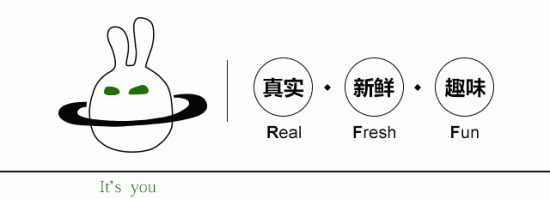尋夢新聞LINE@每日推播熱門推薦文章,趣聞不漏接❤️


設想有個場景,如果你和一個人形機器人同時站在法官面前,需要說出一個詞來證明自己是人類,否則將被殺掉。你會說什麼來證明?
As computers grow ever more intelligent, there are some surprisingly puerile ways we could use to tell us apart from machines.
雖然計算機變得越來越智能化,但我們可以用一些令人驚訝的幼稚好玩兒的方式把人類和機器區別開來。
Imagine
you and an intelligent robot are both before a judge who cannot see
you. The judge will guess which of you is the human, and so will live,
while the other will die.
想像一下,你和一個智能機器人站在一個看不見你們的法官面前。 法官會猜測你們中的哪一個是人類,是人類的那個可以活著,而另一個會死去。
Both you and the robot want to live. The judge
is fair and smart. The judge says: 「You must each give me one word from
an English dictionary. Based on this word, I will guess who is the
human.」
你和機器人都希望活著。 法官是公平而聰明的。
法官說:「你必須給我一個英文字典中的單詞。 基於這個詞,我可以猜出誰是真正的人類。」
What one word do you choose?
你會選擇哪一個詞呢?
Would
it be some lofty spiritual concept like 「soul」? Something that reflects
your own tastes, like 「music」? Or a base bodily function, like 「fart」?
會是像「靈魂」那樣崇高的精神概念? 還是反映自己品味的東西,比如「音樂」? 還是一個基本的身體功能,比如「放屁」?
This
simple thought experiment may seem fanciful, but some cognitive
scientists believe that its consideration can help to illuminate our
basic assumptions about artificial intelligence while also revealing
some surprising insights about our own minds.
這個簡單的思想實驗可能看起來很奇特,但一些認知科學家認為,它有助於闡明我們對人工智能的基本假設,同時也會揭示一些關於人類心靈的驚人特質。
對此,研究人員讓1000名在線參與者想像這個場景,並收集了各種詞匯,例如「愛」、「憐憫」、「香蕉」,這些人們認為機器不會使用的廢話。
In
the first experiment, McCoy and his colleague, Tomer Ullman, asked more
than 1,000 participants to answer the question above and then analysed
the words they produced to find any common patterns.
在第一個實驗中,McCoy和他的同事Tomer Ullman讓1000多名受訪者回答上述問題,然後分析他們給出的單詞,並從中尋找規律。
The top 10 words, in order of popularity, were:
按流行程度排列的前10個單詞是:
Love, Compassion, Human, Please, Mercy, Empathy, Emotion, Robot, Humanity, Alive.
愛、同情心、人類、請、憐憫、同理心、情感、機器人、人性、活著
科學家們將出現最多次的詞語配對,讓2000名在線參與者猜出這些詞哪個來自人類,哪個會來自機器。令人驚訝的是,最後被選出的詞與人類的情感無關,而是一種人類的特有髒話「大便」。
In
terms of the general themes, they found that words conveying bodily
functions (such as 「poop」), faith and forgiveness (such as 「mercy」 or
「hope」), emotion (such as 「empathy」) and food (such as 「banana」) were
the most popular categories.
而在一般的主題方面,他們發現傳達身體功能(如「大便」),信仰和寬恕(如「憐憫」或「希望」),情感(如「同理心」)和食物(如 「香蕉」)是最受歡迎的類別。
McCoy
and Ullman then performed a second experiment to see how other people
would respond to the words generated in the first experiment. Were the
most popular items really as successful at conveying a sense of humanity
as the original participants had suspected? And if so, which were best?
McCoy和Ullman然後進行了第二次實驗,看看其他人對第一次實驗中產生的單詞作何感想。 這些最受歡迎的詞語是否真正傳達了參與者所認為的人性該有的特質呢? 如果是,那麼哪個詞最確切呢?
To
find out, the researchers paired the most popular words together in
various combinations (such as 「human」 and 「love」) and asked another
group of participants to determine which, of the two, was most likely to
have been generated by a human and which by a computer.
為了找到答案,研究人員將最流行的單詞以各種組合(例如「人類」和「愛」)組合在一起,並要求另一組參與者確定哪一組詞最有可能是由人類組合成的,而哪一組是由計算機生成的。
As
we saw in the first study, 「love」 turned out to one of the most
successful. But of the choices available, the highest-ranking word was
「poop」.
正如我們在第一項研究中看到的那樣,「愛情」成為最成功的一種。 但是在可用的選擇中,排名最高的詞是「大便」。
It may seem surprising that faeces turns out to be a human
shibboleth, but the results suggest that knowingly flouting a taboo and
provoking, rather than simply describing, an emotion might be the most
straightforward way of conveying your shared humanity. Other, more
colourful, terms could also spring to mind.
令人驚訝的是,糞便被認為是人類慣用的諷刺,但該結果表明,明確地蔑視禁忌,去挑釁而不是僅僅簡單地描述一種情感,可能是傳達人性最直接的方式。
其他更多彩的詞語也可能浮現在受訪者的腦海中。
Some
of the other words seen as uniquely human evoked similarly strong
emotional responses that went beyond their dictionary definition.
「Moist」, for example, or 「please」. Others are just enjoyable to say. Try
rolling 「onomatopoeia」 around your mouth a few times.
一些被視為為人類獨有的詞語也引發了類似的強烈情緒反應,並超越了字典的定義。 例如,「潮濕」或「請」。 而其他一些詞僅僅是說起來很好玩,比如「擬聲詞(onomatopoeia[,ɒnə(ʊ)mætə’piːə])」這個詞,不信你試著念一念。
The
reason for this might be a fair reflection of the current state of AI.
While bots can now write basic descriptive sentences and even
intelligible short stories, they still struggle with humour and sarcasm.
Humour, after all, requires a deep understanding of context and the
many cultural associations that are embedded in each word.
這個研究結果如此,可能正好反映了當前AI的狀態。 雖然機器人現在可以編寫基本的描述性句子甚至是簡潔明了的短篇小說,但他們在使用幽默和諷刺方面仍然很困難。 畢竟,幽默需要具備深刻理解語境和每個詞中所包含的許多文化聯想。
His own favourite was deceptively simple. 「One of the words I liked was ‘err…’ – that was clever,」 McCoy says.
McCoy本人最喜歡的詞則看似簡單。「我喜歡的其中一個詞是‘呃’,太聰明了,」他說。
畢竟一般的機器人不會有這種語氣詞……
In
general, though, it is worth remembering that if you ever do need to
prove yourself as a human in a world increasingly run on machines, be
crude, and be funny.
但總的來說,值得記住的是,如果你確實需要在一個越來越多機器人運行的世界中證明自己是一個人類,那麼你需要粗魯些、有趣些。
英文來源:BBC
往
期
回
顧
「give me a credit」並不是「給我一張信用卡」| 地道英語
小夥伴們記得設星標哦!
星
標
福
利
設置星標後
截圖發送至公眾號對話框,並回復「星標」
即可領取10部動畫電影資源!

